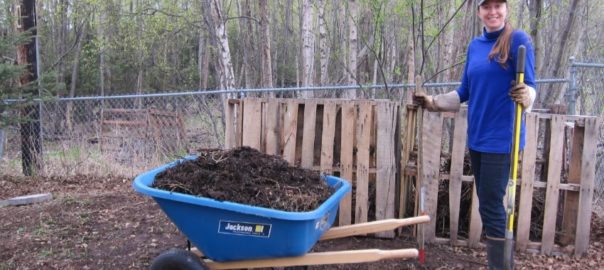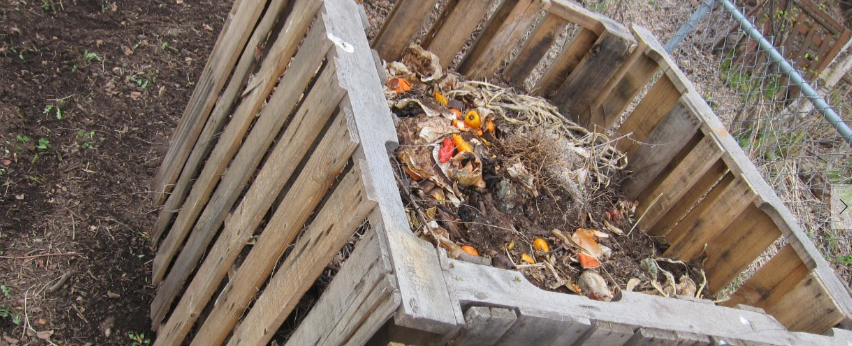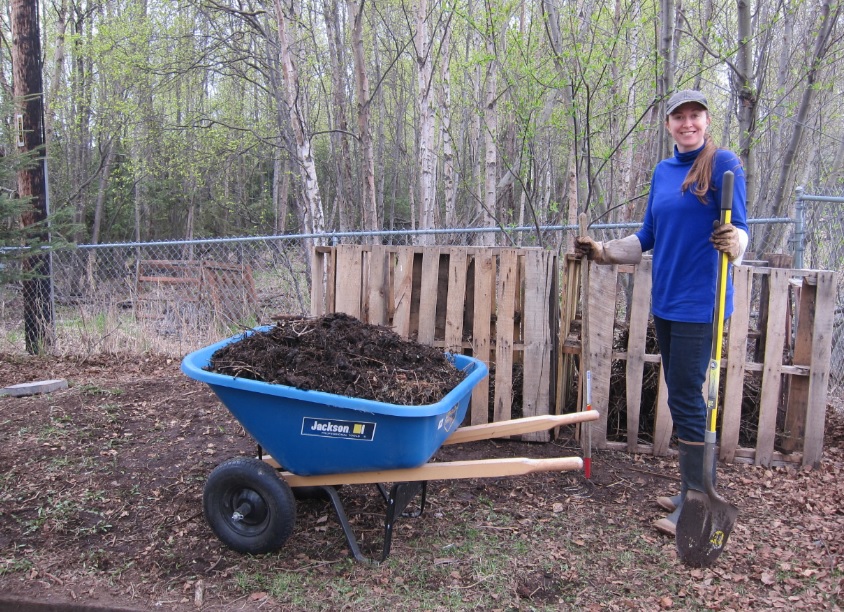Many gardeners and permaculture enthusiasts have worked composting into their way of life, because it’s the best (and cheapest) way to add nutrients back into your planting soil and your yard.
What is compost?
Compost is really just rotten stuff that’s basically turned into dirt, and it’s ready to be mixed back into the garden. While compost experts might take issue with me using the word “rotting,” that’s the simplest way to explain it.
Compost can start as almost anything – uneaten kitchen scraps, hair collected after brushing the dog, grass clippings from the lawnmower. Mostly anything organic can be composted.
There are lots of different ways to turn identifiable organic waste into dark brown, nutrient-rich planting medium.
Some people use buckets of worms to break down scraps. Other people are skilled in creating a ‘hot’ compost, which breaks down the fastest. Or you can compost just by throwing everything into a pile and letting nature do its thing.
Each compost method breaks down at a different speed, but there’s really no wrong way to compost.
Whether it’s worms eating your old food bits, or it’s microbes breaking it down, composting is decomposition. It’s old stuff rotting and being returned to something very nutrient-rich that plants grow & thrive in.
Does composting smell bad?
Let’s be honest – composting isn’t glamorous. It’s a pile of rotting stuff in your yard – but plants LOVE it, and that’s why most of us composters think it’s worth it.
Contrary to what many people think, composting doesn’t have to smell bad.
In fact, when I walk up to my compost, it barely has an odor at all. That’s because I’m selective about what I add to it.
Meats and dairy products are what make compost piles stink. There’s a long, long list of things you can add to your compost pile that won’t make it smell. Just avoid throwing in old meat and dairy, and it won’t smell nasty.
Composting usually has a light odor, especially when you turn it, but it’s nowhere near the stomach-lurching smell of rotten chicken in the bottom of the trash can.
When you compost without using meat or dairy products, the scent is earthy and rich, not pungent or offensive.
Imagine taking a fall hike through the woods. You see moss growing on old stumps, an occasional rotting tree fallen over, and leaves on the dirt path. It all has a specific earthy, natural smell. That smell is essentially the ‘earthy’ smell of a home compost pile, too.
It’s like scooping up a handful of moist dirt and giving it a big whiff. In my experience, the smell of compost is comparable to that.
Why compost?
Everybody gardens differently and in their own way, which is the beauty of it!
Some people prefer to buy bags of pre-fertilized gardening soil from the store each season. Other people prefer to make it themselves by composting.
In my opinion, if you have enough of a yard to need to mow the lawn, it’s worth composting.
Why spend money bringing chemicals and outside fertilizers into your yard if you have all of the nutrients and organic fertilizer you need already, just waiting to be collected?
In our home, every time we eat an orange or banana, the peel goes into the compost pile. Every time we brew a pot of coffee, the old coffee grinds and filter go into the compost. Every time we mow the lawn, all of the grass clippings go into the compost, too.
You don’t realize how much organic waste your family produces in a year until it’s literally in a pile in the yard!
Instead of throwing all of it in the trash can and buying fertilizers every year, you can continue the cycle of life in your own space. And that’s a pretty incredible feeling. Waste not, want not. :)



Holy smokes, I live in a three story condo building and have no access to a yard and I’m sitting here at almost 11:00PM reading about rotting, smelly matter commonly known as compost. Why in hell do I care about rotting garbage? I guess when one lives alone, the reading habits can take off in weird directions. Your yard looks great in the summer, girl. I supposed the end result is well worth the effort.
Ha, thanks Cecil!